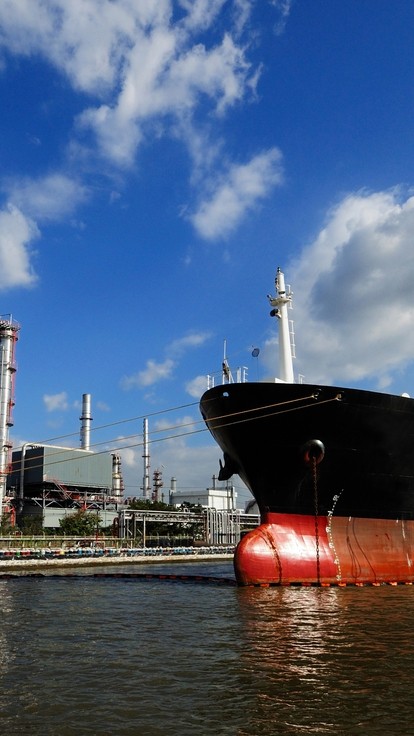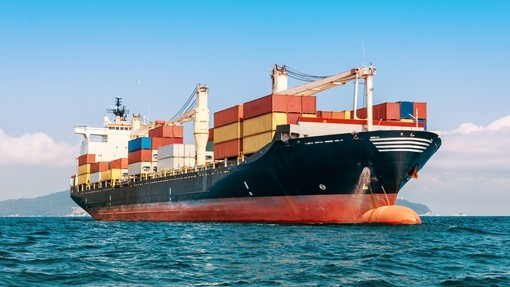ST Shipping and Transport Pte Ltd -v- Space Shipping Ltd (The “CV STEALTH”) [2017] EWHC 2808 (Comm)

Details
In this Commercial Court case Mr Justice Popplewell considered two section 69 appeals, arising out of the detention of a vessel, dealing with issues in relation to causation and deductions for benefits received. This case serves as a reminder of what can properly form the subject matter of a section 69 appeal.
Factual background
On 19 September 2014 the “CV STEALTH” (the vessel) was detained at Puerto La Cruz by order of the Venezuelan court. At that time the vessel was waiting to load cargo pursuant to an order dated 4 September 2014 (the employment order), given by ST Shipping and Transport Pte Ltd (the charterers) to Space Shipping Ltd (the disponent owners). The vessel remains there to this day although it appears that there is no reason why it should not be released from detention.
By a first partial award dated 23 September 2015 the arbitrator held that the charterers were liable to the disponent owners for the financial consequences of the detention up to 21 July 2015. The charterers sought to appeal this issue. The arbitrator’s finding that the employment order was an effective cause of the detention of the vessel, up to and including 21 July 2015, was upheld. The judge said that this was a finding of fact by the arbitrator which was not open to challenge on appeal.
By a second partial award, dated 8 August 2016, the disponent owners’ claim for trading losses, between 21 July 2015 and 23 September 2015, was rejected on the grounds that the vessel would have been redelivered to her registered owners on 22 July 2015. The arbitrator also held that some $800,000 of expenses incurred were recoverable in principle, thereby finding that the employment order was an effective cause of the detention up to 23 September 2015, but he declined to make a monetary award on the grounds that the costs of dry-docking, which the disponent owners would have had to incur on or about 27 June 2017, constituted a saving for which credit would have to be given.
By a fourth partial award, dated 25 May 2017, the arbitrator considered the disponent owners’ claims for continuing losses, consisting of $4,374,378.12 of hire payable to head owners for the period from 22 July 2015 to August 2016 and $3,531,990.53 in respect of expenses of detention for the period between 22 July 2015 and 31 March 2017. The arbitrator held that the employment order was still causative of the disponent owners’ losses up to 31 March 2017 and awarded the disponent owners the head charter hire claimed, the July 2015 to March 2017 expenses, and the pre-July 2015 expenses covered by the second partial award. The arbitrator also held that it was still appropriate to set a provisional credit of $1.4 million for saved dry-docking expenses.
Legal issues
By appeals pursuant to section 69 of the Arbitration Act 1996, the charterers sought to challenge the award on the finding of causation in relation to losses after July 2015 and the disponent owners sought to challenge the award in relation to the deduction of $1.4 million for saved dry-docking expenses. Both said that because of the terms of clause 41 of the charterparty (providing it was agreed that either party might ‘appeal to the High Court on any question of law arising out of an award’) permission to appeal was not required, but said that if permission was necessary it should be granted.
Charterers’ appeal
The charterers argued that the arbitrator had failed to ask himself the correct question of law when determining causation of the continued detention of the vessel. They said that the correct question was whether the employment order continued to be an effective cause of the detention, or whether the sole effective cause of that detention eventually became the intractable and perverse refusal of the Venezuelan courts to order the release of the vessel as required by Venezuelan law. They said that the only question that the arbitrator asked was whether anything had changed.
In considering this appeal the judge reminded himself of the principles governing the approach to the reading of awards summarised by Teare J in Pace Shipping Co Ltd -v- Churchgate Nigeria Ltd (the Pace) [2010] 1 Lloyd’s Rep 183 that the courts do not approach awards with a meticulous legal eye endeavouring to pick holes, inconsistencies and faults in awards with the object of upsetting or frustrating the process of arbitration.
The judge said that there was no warrant for treating a very experienced arbitrator as having misunderstood or misapplied the legal test for causation, and referred to the fact that the arbitrator had applied the relevant test in his first partial award. The judge went on to dismiss the appeal stating that, like the charterers’ first appeal, this was another example of trying to dress up an appeal against a finding of fact as one which turns on questions of law. He also said that, since the appeal did not raise a question of law which could substantially affect the rights of the parties, there was no right of appeal under clause 41.
Disponent owners’ appeal
The disponent owners argued that it was not open to the arbitrator to make the deduction of $1.4 million and said that giving credit for benefits received in consequence of breach was not a matter of justice but required the application of strict legal principles, relying on the authorities of Lowick Rose LLP -v- Swynson [2017] 3 All ER 785 and Fulton -v- Globalia [2017] 1 WLR 2581. They said that deductions could only be made if there was a finding that there was a benefit and that the benefit was legally caused by the breach, in accordance with the Fulton -v- Globalia principles (see the “NEW FLAMENCO” in our July edition). Finally, they said that in deducting a provisional sum for something which was not the subject of a decision, the arbitrator was crossing the boundaries of what an arbitrator may properly do in an interim award, the Kostas Melas [1981] 1 Lloyd’s Rep 18.
The judge said that he was unable to accept this argument, noting that, with the full agreement of the parties, the arbitrator had not been seeking to address the loss once and for all but had adopted a wait and see approach by reference to events as they unfolded. The judge held that this was entirely in keeping with the arbitrator’s functions and the principles governing interim awards in the Kostas Melas, and said that this case management decision could not properly form the subject matter of an appeal under section 69, or under clause 41, of the charterparty. Against that, the judge went on to dismiss the appeal stating that the arbitrator’s deduction of a provisional sum for potentially saved dry-docking expenses was principled and sound.
Case comment
This case reiterates the point that, when considering a section 69 challenge, the court will be careful not to interfere in the area of fact finding and that the court should not be endeavouring to pick holes in awards.
This article originally appeared in the December 2017 edition of shipping case digest. Other articles include:






